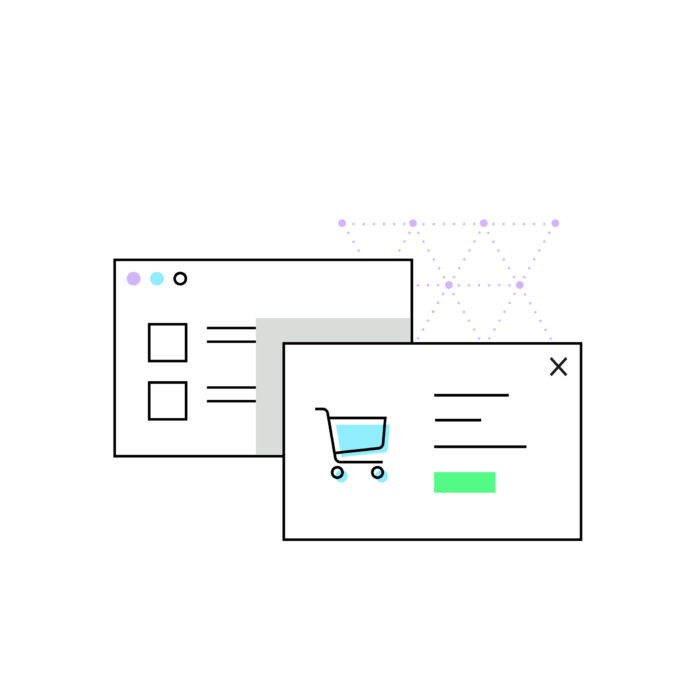Five facts retailers must know about compliance
by February 10, 2025
Retailers are selling their products everywhere – brick-and-mortar locations, their own websites, social media, via marketplaces, and wholesale. For merchants taking advantage of this ability to sell across multiple channels, there can be cumbersome sales tax compliance obligations. It can be difficult to gain a full picture of your company’s financial health if you aren’t tying in sales data from all those channels to create a single source of truth. The more products you sell in more states, the higher your potential for sales tax liability.
Automation tools can track your potential sales tax liabilities
As more of every retailer’s sales are coming from customers buying online, your odds of triggering sales tax obligations in multiple states increases. But how do you know if you’ve met the requirements to collect and remit sales tax in a state? The key is finding an automation solution that can track your obligations, and will alert you if your company is close to achieving it.
This can be especially challenging to calculate manually when you’re selling across channels – are you sure you’re calculating marketplace sales that count towards your obligations in one state, but not another? Do you have a comprehensive view of all your transactions? Do you have a resource that will stay up to date with changes in legislation? An automation solution takes the guesswork out of the process and can easily manage this task, presenting you with a clear, accurate picture of your tax obligations in multiple states.
Utilize unified, multichannel reporting for a clear picture of your tax obligations
If your current reporting only gives you a partial picture of your sales from a few select channels, is it really allowing you to assess your company’s full financial health? Look for a sales tax solution that compiles data from all your linked accounts, CSV imports, and individual state sales tax reports into one reporting dashboard. An automated solution can also generate state-specific reports with jurisdictional breakdowns that could take hours upon hours to compile using manual methods. Knowing your sales figures from every channel in every state is another key to compliance.
If your company is being audited, having accurate reports on hand can save time scrambling to provide a state’s auditor with requested paperwork. States typically request sales records from a lookback period of 3-4 years. Utilizing reliable reporting ensures you have accurate and up-to-date sales data that won’t monopolize your finance team’s time during the duration of the audit.
Try TaxJar for free
TaxJar offers one platform to manage every aspect of sales tax compliance from calculations to reporting to filing. Try our sales tax compliance platform for 30 days, completely free with no obligation.
Get startedKnow the right Product Tax Categorizations to assign your products
It’s important to assign the correct Product Tax Categorization to a product for one simple reason: if you don’t apply the correct one, you may not be charging the correct amount of tax. Let’s look at an example that illustrates how important this is.
Prepared food – whether it’s made in a restaurant, a commercial kitchen, or a grocery store – is almost universally taxable. Groceries are generally not taxed, but in some states it’s taxed at a reduced rate. In California, a hot baked pretzel sold to-go is exempt from sales tax. But if a hot baked pretzel is purchased for consumption at a store – or any meals meant to be consumed on premises – it’s taxable.
Sales tax compliance platforms can use automation to assign product codes for the items you sell; different automated systems will often have product-specific codes that relate to specific categorizations. If your company has products that could be open to interpretation in terms of their taxability, you may want to consult a sales tax professional.
Understand the shipping taxability laws
Shipping costs are taxable in some states, but not in others. About half the states in the US (including Pennsylvania and Texas) say that if you charge for shipping as part of an order, it’s taxable, whether it’s listed as part of the item price or listed separately. The other half (like California and Colorado) say shipping charges are not taxable if you show the charge separately from the item’s price. They are taxable if you include the charge as part of the item price.
There are also outliers like New Mexico and Florida, which generally require taxes to be charged on shipping, but have such unique ways of handling those taxes that it’s worth reading up on. Take New Mexico, for example. Here, retailers have the option to charge the buyer gross receipts tax (GRT). Instead of sales tax, New Mexico’s GRT is a tax on businesses for the privilege of doing business in the state. Businesses can choose to pass their GRT onto their buyers’ shipping charges, or pay it out of pocket when they file a GRT return. As always, laws vary from state to state, so make sure you’re following each state’s regulations, which you can view here.
Build integrations that can grow with your business
A retailer’s multichannel strategy acknowledges that growth comes from meeting customers where they are – and that retailers must constantly innovate in order to grow. Take social selling: according to The Drum and Dash Hudson, “81% of consumers are discovering new products on Instagram and 80% are using it to make purchase decisions.” No matter which social media platform gains prominence next, retailers will look to meet customers where they are.
Whether your brand is growing through acquiring customers on social media or by opening brick-and-mortar locations, it’s key that you find integrations that scale with your company. For the thousands of retailers that use platforms like Magento or BigCommerce, integrating a tax solution (via a custom API or a pre-built solution) allows them to gain full visibility into revenues and the tax liabilities associated with those sales. Reporting is a key to staying compliant, and with the advent of developer- friendly integrations, it’s never been easier.
Learn more about automating sales tax compliance with TaxJar
Based on what you’ve read so far, you know that it’s important to keep in mind that as your brand grows and adds customers in multiple states, you’ll be faced with both an increase in tax obligations and the need to file sales and use tax returns more frequently.
Automating your sales tax through a trusted solution increases efficiency and accuracy. That’s possible with AutoFile, which uses the data that we receive from your e-commerce platforms or ERP systems to prepare and submit an accurate return along with your remittance. TaxJar reduces errors with regards to filing, and guarantees accurate and on-time returns.
With TaxJar, you can swap the hours your business would spend navigating multi-state payment processes with automatic monthly reports, on-time filings, and a friendly but informative customer experience that ensures you have the support when you need it the most. For more information about TaxJar and to start your free trial, visit TaxJar.com.







